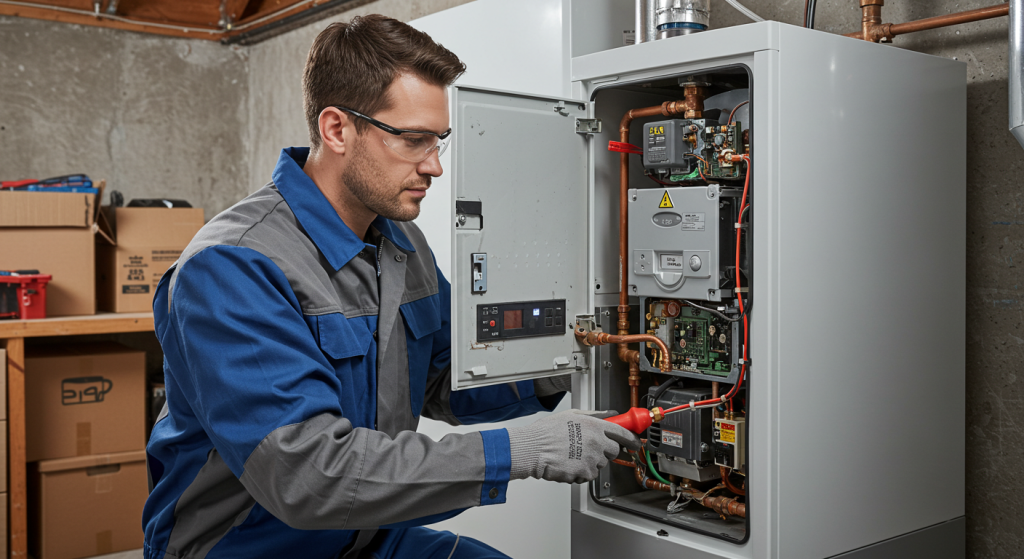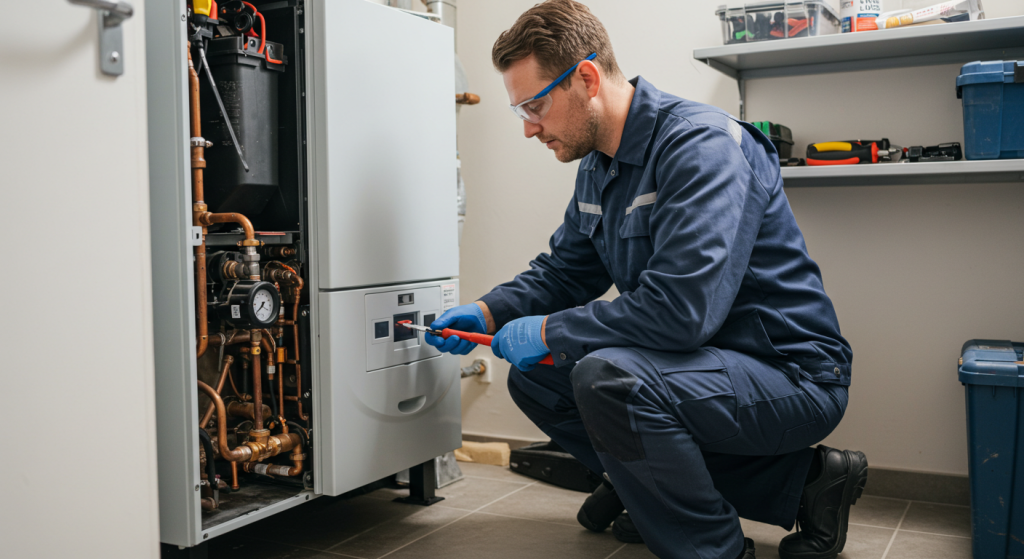Want to avoid costly, unexpected boiler repairs? At Obie Comfort Solutions, we’re not comfortable until you’re comfortable. Regular tune-ups are key to keeping your boiler running efficiently and preventing emergencies. Here’s how consistent maintenance can save you time, money, and hassle while ensuring your home stays warm and safe.

Key Takeaways
- Regular boiler tune-ups are essential for safety, efficiency, and extending your system’s lifespan while preventing costly emergency repairs.
- Key components to inspect during a tune-up include the burner flame, pressure gauge, and internal filters to ensure safe and functional operation.
- Annual professional service is critical for identifying minor issues before they escalate. Neglecting this can void warranties and lead to costly breakdowns.



